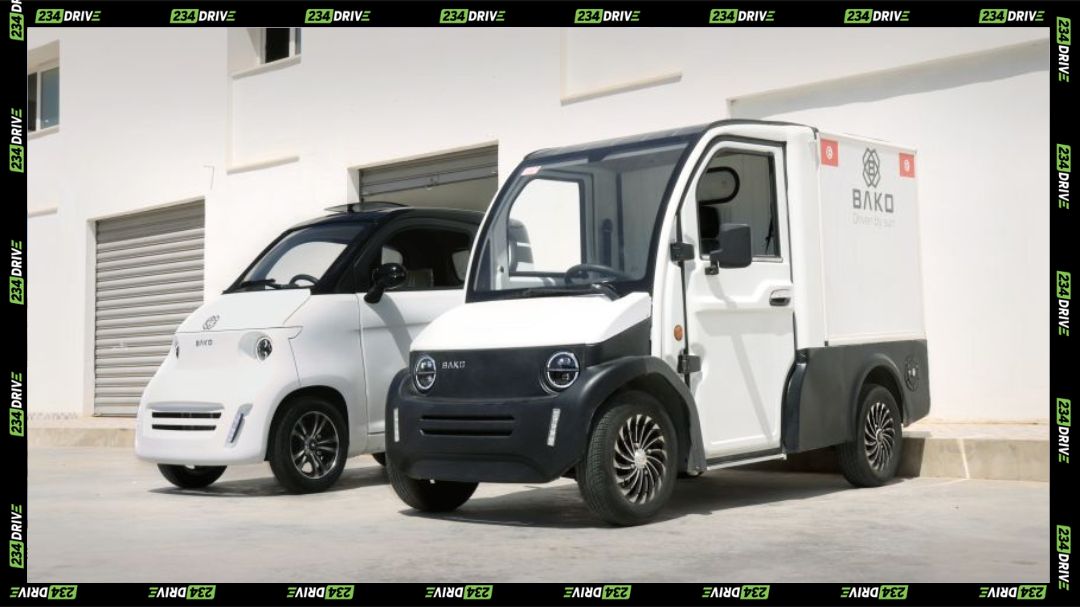Bako Motors, a Tunisian-German startup founded in 2021, is making bold strides in reshaping Africa’s electric vehicle (EV) landscape. With its recent expansion into Morocco, the company signals a strategic push across Africa and the Middle East. While specific timelines like 29th October, 2025, appear tied to market entries rather than formal launch events, reports indicate that Bako’s presence in Morocco marks the next step in scaling sustainable mobility across sun-rich regions. The company’s innovative solar-powered vehicles—the Bee and B-Van—are designed to provide affordable, off-grid transportation solutions that align perfectly with Africa’s energy realities.
At the heart of Bako Motors’ innovation lies its solar integration technology. The Bee compact car and B-Van cargo van each feature rooftop solar panels that generate up to 50 km of daily range directly from sunlight, reducing reliance on the electric grid. The Bee, priced around $6,200, delivers a total range of 70-120 km and a top speed of 45 km/h—ideal for city commutes and short trips. Meanwhile, the $8,500 B-Van targets last-mile logistics, carrying up to 400 kg of cargo with a range between 100 and 300 km. Both vehicles are equipped with lithium-iron-phosphate batteries and locally sourced steel frames, achieving over 40% local component sourcing that supports regional manufacturing and job creation.

Founded by Boubaker Siala, Bako Motors initially focused on three-wheeled cargo EVs before transitioning to four-wheeled solar-integrated vehicles. So far, the company has produced about 100 units, with a second factory planned for late 2026 to boost annual capacity to 8,000 vehicles. This expansion could capture up to 10% of Africa’s emerging EV market, projected to reach $4.2 billion by 2030. Morocco, chosen as a strategic next step, offers strong renewable energy infrastructure and an evolving automotive ecosystem, making it an ideal gateway for North African expansion. Sources suggest that Bako may partner with Moroccan suppliers to increase local component integration to 40%, strengthening both economies through green industrial collaboration.
The Bee and B-Van stand out not just for their engineering, but for their social impact. In areas where fuel prices are volatile and electricity grids unreliable, Bako’s vehicles empower rural drivers and small businesses by offering reliable, zero-fuel transport. A single day of solar exposure provides enough power for typical urban commutes or small-scale deliveries—equivalent to roughly 17,000 km of annual travel without plugging in. This innovation directly addresses Africa’s infrastructure gap and offers a sustainable alternative that enhances productivity in underserved regions.
The company’s expansion into Morocco comes amidst growing regional efforts to embrace clean transportation. The North African nation has hosted events such as the Electric and Hybrid Vehicle Expo and continues to attract investment in green mobility, including partnerships with major international automakers. Bako’s entry complements these initiatives, adding a distinctly African-led innovation story to the mix. Participation in high-profile showcases like GITEX Africa 2025 in Marrakech has already positioned the startup as a credible regional contender alongside established global EV players.
However, challenges remain. While the promise of low-cost, solar-charged vehicles is compelling, questions linger around large-scale production, affordability for rural buyers, and government support. Critics note potential performance limitations under cloudy weather conditions and the high upfront costs compared to used internal combustion vehicles. Yet Africa’s abundance of sunlight—averaging over 3,000 hours annually—gives Bako Motors a distinct advantage. As renewable energy policies evolve and public interest in sustainable technology grows, the company’s model could prove catalytic for the continent’s transition to clean transport.
Ultimately, Bako Motors embodies the vision of an energy-independent Africa, where innovation meets accessibility. Its Morocco expansion signals a transformative moment for green mobility in the region—one driven not by imported technologies, but by locally engineered solutions built for Africa’s realities. As Bako scales production and strengthens partnerships, it may not only reshape how Africans move but also redefine how the world views sustainability from the Global South. The question now is whether regional governments and investors will accelerate support for this solar-driven revolution—potentially turning Africa into a global hub for affordable, off-grid electric vehicles.









